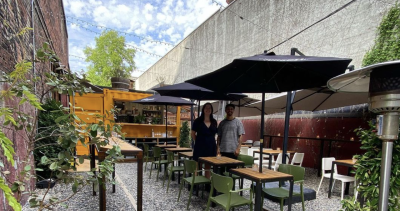How big is B.C.’s tech industry?
Ask someone to imagine B.C.’s technology sector, and they’ll likely picture a room of software developers tapping impenetrable lines of code. In reality, tech companies are full of individuals with a wide variety of professions, all working to create products that influence every aspect of society. From communication to entertainment and workplace tools, the province’s businesses are solving problems like paying rent on time, turning wastewater into fertilizer, and making cars that run on hydrogen.
B.C. has a number of high-tech clusters. Boasting special expertise in areas such as game development, cleantech, and wireless communications, the province’s organizations are reimagining how to improve the daily lives of many. On top of that, they’re making a huge difference to the local economy.
British Columbia’s tech sector generates around $15 billion in GDP, which translates to seven percent of its economy. By comparison, its forestry sector (wood, pulp and paper production, logging, and silviculture) is responsible for just over three per cent of total GDP.
That’s due, in a large part, to a huge spike in employment. More than 106,000 individuals work in the local tech industry—an all-time high. Representing five percent of B.C.’s workforce as a whole, tech workers in the province outnumber those in the mining, oil, gas, and forestry sectors combined, including the manufacturing activities related to those resources.
Despite its size, the tech industry is continuing to grow. According to the latest statistics released by the government—those for 2016—employment in the sector increased by more than four percent. The number of businesses, too, saw a leap, with 331 new startups opening their doors. That brought the total of high-tech companies to over 10,200—a jump of 3.3 percent.
The rate at which local businesses are expanding has created a huge demand for tech-sector talent—a boon that’s reflected in their salaries. The average worker in the industry earns $1,690 a week, compared to just $920 for the average B.C. employee. Showing no signs of decreasing, that number has been rising for the past six years.
Most technology companies are concentrated in the Mainland and Southwest region of the province—69 percent, to be precise—with the vast majority in Greater Vancouver. The region is home to the head offices of the largest tech businesses in B.C., including Telus, Maxar Technologies, and Sierra Wireless. On top of that, behemoths like Microsoft, Amazon, and Sony have a strong presence in the city, with Amazon announcing this week that it will expand its representation in Vancouver by opening a second location with 3,000 new jobs.
Ranked as Canada’s best startup ecosystem, the lower mainland is currently the location of three of the country’s five tech unicorns (startups valued at more than $1 billion)—Slack, Hootsuite, and Avigilon—and boasts very supportive funding plans and tax credits.
In the last few decades, the world has undergone a technology revolution, and B.C. is no exception. With its rapid growth and high salaries, the sector's benefits attract many to transfer into the industry. A home for more than just computer scientists, local artists, for instance, have found jobs working in game design, marketers take the helm for blossoming startups, and accountants balance the books. As more individuals bring their skills into the industry, the sector will continue to develop, and contibute to a larger portion of B.C.’s GDP.
Statistics from B.C. Stats report Profile of the British Columbia Technology Sector: 2017 Edition.
Follow Kate Wilson on Twitter @KateWilsonSays
More














Comments